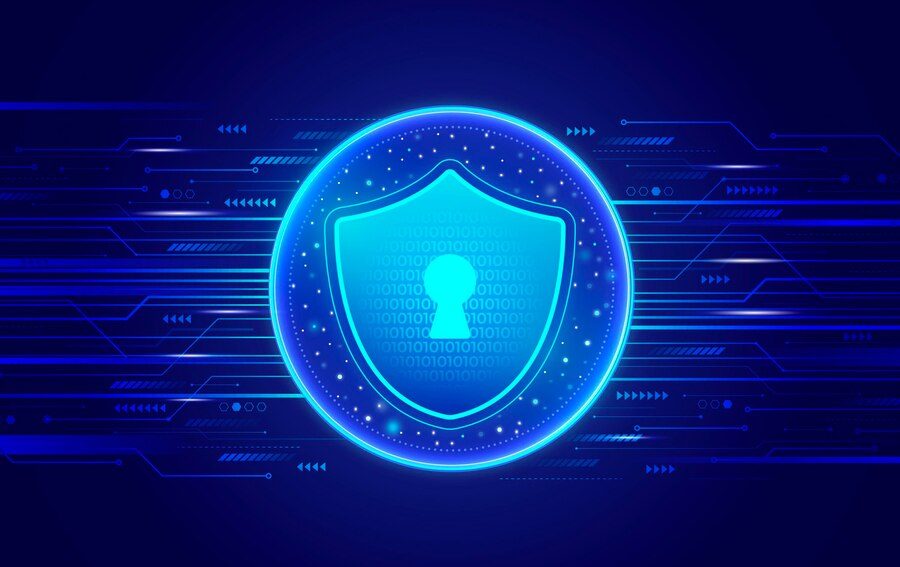How Do Security Tokens Work?

Cybersecurity remains a constant concern for individuals and business owners. It falls upon you to minimize these expenses for your clients, necessitating a thorough grasp of optimal user and network security strategies, as well as effective communication of these practices to end users.
Your clients depend on your team to navigate the continuously evolving IT landscape. While numerous network authentication methods are available to bolster a robust security approach, token-based authentication is preferred among many service providers. In this article, we’ll explore what security tokens are, their types, and how they work to bolster the security of large institutions.
Understanding The Basics Of Security Token

A security token, whether physical or wireless, serves as a means of two-factor authentication (2FA) for users during login procedures, validating their identity. Its usage is predominantly for physical access verification or gaining entry into computer systems.
Tokens may be an item or a card displaying or containing pertinent security details about the user, which the system can verify. These tokens can substitute for or supplement traditional passwords and are frequently employed to access computer networks. Additionally, they play a role in securing physical entry into buildings and serve as electronic signatures for documents.
Read Also: Which Area Of Investment Is Right For Me?
1. Password Authentication
Password authentication fits into the knowledge category since users depend on a word or phrase they’ve established beforehand to confirm their identity. Biometric authentication exemplifies “something you are” using biological characteristics such as fingerprints.
Finally, token-based authentication falls under the possession category. Users must acquire a computer-generated code (or token) before accessing the network. Token authentication is commonly employed alongside password authentication to enhance security, constituting what we know as two-factor authentication (2FA).
2. Customization
Security tokens are designed with customization as a priority, recognizing that the requirements of one company may differ significantly from those of another. Carefully select the appropriate version to ensure the right balance between security and flexibility.
- Connected tokens require users to physically link the token to the desired system. Users insert the device into a reader, and authentication information is transmitted automatically to the computer system.
- Contactless tokens eliminate the need for a physical connection to a device, and users are not required to input an additional keyword or access code. Instead, these devices establish a wireless connection with the system, granting or denying access based on this connection.
- Disconnected tokens remove the necessity for physical insertion into a device, although users may still need to enter a code generated by the token.
- One-time passwords (OTPs) represent a digital security token that is uniquely valid for a single login session and rendered unusable. OTPs are commonly generated through a cryptographic algorithm utilizing a shared secret key derived from two distinct and random data components: a random session identifier and a confidential key.
Apart from this, the other security tokens include smart cards, programmable tokens, single sign-on software tokens, etc.
How Does A Security Token Work?
A security token facilitates the authentication for system access. Users can utilize it across various devices capable of generating passwords, such as smart cards, USB keys, mobile devices, or radio frequency identification cards. Each time the device is employed, it generates a fresh password.
The foundation of security token technology lies in deploying a device that produces a random number, encrypts it, and transmits it to a server alongside user authentication details. Subsequently, the server dispatches an encrypted response that solely the device can decipher.
Although traditional token authentication systems persist, the emergence of smartphones has significantly simplified token-based authentication. Smartphones can function as code generators, furnishing end users with the requisite security passcodes for network access whenever needed.
Users obtain a cryptographically secure one-time passcode during the login procedure, restricted to 30 or 60 seconds, contingent upon server settings. These soft tokens are produced by an authenticator application installed on the device or dispatched upon request via SMS.
Industries That Use Security Token
Security token offering refers to a sale model that is not only made by adhering to guidelines but is also sold accordingly. All these tokens are still in their growing age, but many industries have already started using security tokens for their convenience. Let’s have a look at them:
1. OTT
One of the biggest crypto marketing industries in the world is OTT, where various stakeholders and community managers invest profusely. Before, the industry had already proved its array of skills along with its multi-currency wallet to different consensus processes. Furthermore, OTT also focuses on ICO-related services, blockchain services, and investment instruments.
2. Block Gemini
Another infamous community where blockchain engineers use security tokens is Block Gemini. The key aim of the firm is to help established firms come up with a decentralized ecosystem where clients get an efficient medium of communication. Further, the firm offers an accurate, personalized platform for crowd sales that encourages investment growth in the fundraising process.
3. Crowdcreate
The development of bitcoins started in Crowdcreate when it started making financial markets more approachable. This firm maintains an expanded connection of cryptocurrency users, programmers, and avid enthusiasts in different languages and time zones. Further, it also paves the way for reliable resources like Smartereum and CryptoDaily.
4. Priority Token
Priority Token is a reputable industry that provides consulting services related to security tokens. Users have faith in this firm because of its massive consulting and fundraising solutions. Further, the inclusion of legal solutions in conventional marketing helps agencies to produce immediate funding opportunities. This pan-Asia investor network has assisted various firms for a long time.
Conclusion
Passwords pose a significant vulnerability to hacking. Relying solely on users for security leaves you vulnerable to potential disasters. Security tokens offer a means to mitigate these risks by either complementing or completely replacing user-generated passwords.
A Security token contributes to a multi-factor authentication (MFA) solution when integrated with passwords. These tokens utilize a physical or digital identifier unique to each user. Most types of tokens are user-friendly and convenient. Smart cards offer heightened security, with the embedded chip capable of self-invalidating in case of damage.
Read Also:


























Leave A Reply